Key Highlights
- Artificial intelligence (AI) is transforming patient care by streamlining workflows, improving diagnostic accuracy, and supporting healthcare providers.
- AI applications such as virtual assistants and chatbots enhance patient engagement and make healthcare delivery more efficient.
- Predictive analytics and personalized reminders help increase patient satisfaction and improve health outcomes.
- Healthcare organizations leverage AI for real-time patient monitoring, care coordination, and journey mapping.
- Innovations in multilingual communication expand access and inclusivity for diverse patient populations.
- AI adoption in the healthcare system promises more personalized, efficient, and empathetic patient interactions.
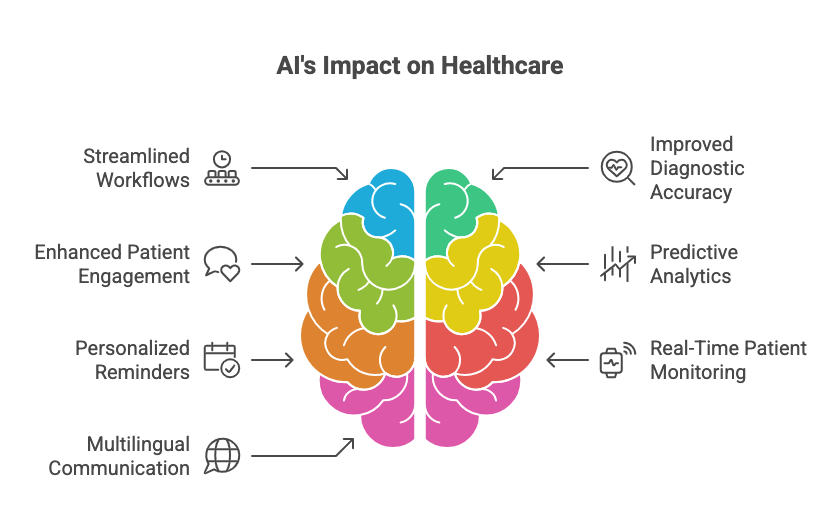
AI in Healthcare: Revolutionizing Patient Care and Communication
The frustrations surrounding modern healthcare are all too familiar. We frequently find ourselves in doctors’ offices where the physician is preoccupied with typing into a monitor, and we leave feeling rushed and unsatisfied. The coordination of care seems perpetually delayed, and switching doctors often leads to the same disappointing experience. However, there’s hope on the horizon as artificial intelligence (AI) promises to transform this narrative.
The Digital Solution: Introducing AI
Imagine visiting a healthcare facility where AI provides undivided attention, listening intently without fatigue and handling tasks with precision unmatched by human abilities. AI can meticulously sift through data, ensuring that not a single detail is overlooked during critical examinations. It is not here to replace healthcare professionals but to augment their capabilities, making the patient experience more pleasant and fulfilling.
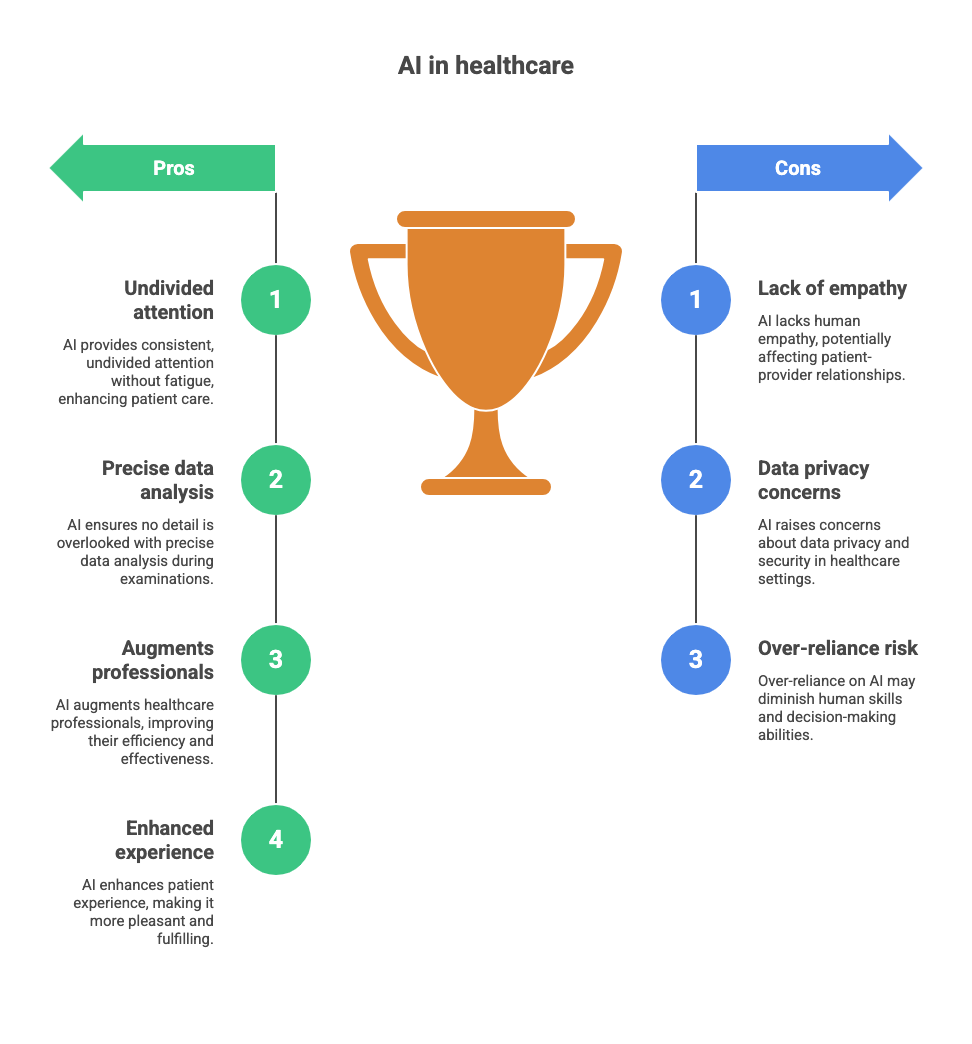
AI’s Role in Healthcare: Efficiency Without Compromise
Artificial intelligence is becoming a vital tool in healthcare, enhancing the delivery model from the moment a patient makes a call. A typical physician receives numerous calls daily, demanding substantial time just to address them. AI and multilingual chatbots have the power to take over these responsibilities, offering language-specific communication and freeing up staff for essential tasks. As co-pilots, these AI technologies streamline healthcare administration, reduce wait times, and allow professionals to focus on patient care.
Transforming Patient Interaction: From Intake to Examination
From patient intake to examination, AI continues to demonstrate its value. Imagine arriving for a visit and breezing through tedious paperwork via digital tools that upload your health records seamlessly. As you settle in, an ambient AI listens to conversations, accurately documenting your medical history, treatments, and diagnostic results. This technology frees doctors to focus on meaningful interaction, creating an environment where they listen without distractions.
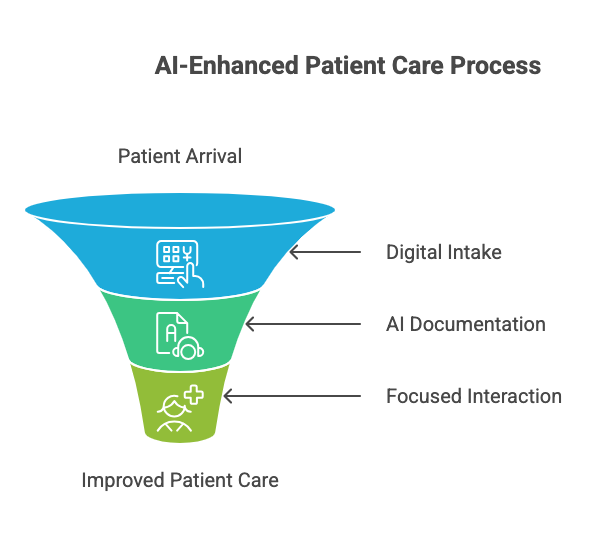
Post-Visit Coordination: AI Keeping the Momentum
AI doesn’t stop working once your visit concludes. It coordinates follow-up care, manages referrals, and creates concise synopses of medical documents for your physician. With AI, practices have become more efficient, reducing wait times significantly and enhancing empathetic care. Patients experience not only timely assessments but also receive appropriate preventive care reminders, illustrating AI’s comprehensive involvement in patient well-being.
Restoring Empathy through Technology
AI is not a replacement for the human touch but a powerful companion that allows doctors to be more present emotionally and cognitively. As AI handles the administrative burdens, physicians can return to their roots as empathetic healers, listening and responding to patients’ needs holistically.
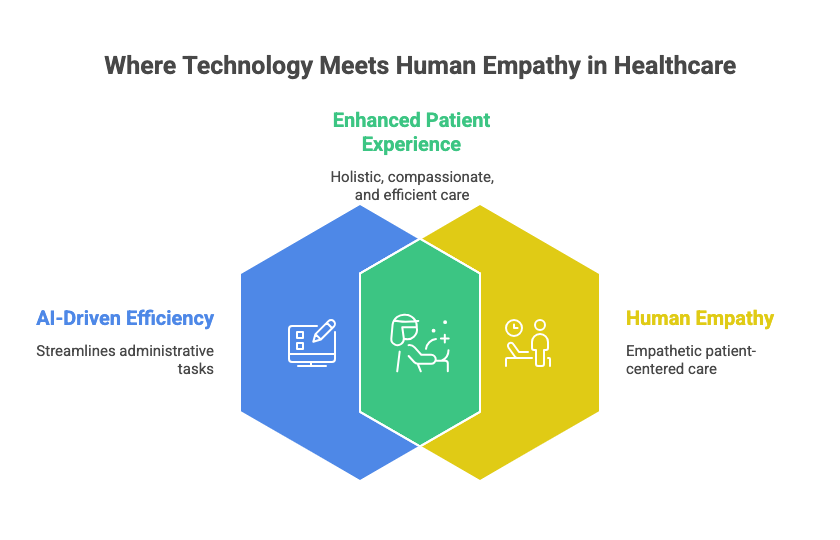
Looking Ahead: A Future with AI in Medicine
Artificial intelligence is reshaping healthcare, but this journey is just beginning. As technology evolves, we anticipate creating a series of educational content to explore AI’s role further in transforming patient experiences. Stay tuned, share, and subscribe to our channel, Con MD, for more insights on this exciting frontier. Thank you for reading, and we look forward to continuing this journey with you.
AI has already begun its transformative journey in healthcare, making it efficient, patient-centric, and compassionate. As we embrace AI, we find ourselves not only restoring the sacred doctor-patient relationship but also innovatively redefining it for future generations.
Conclusion
The integration of artificial intelligence within healthcare systems signifies a transformative shift in patient interactions. With AI tools enhancing communication and personalizing care plans, healthcare providers can better address patient needs and improve satisfaction. The potential of predictive analytics and machine learning facilitates better health outcomes and streamlined administrative tasks, promoting efficiency. However, ethical considerations and data privacy issues must be navigated carefully to secure patient trust. As technologies evolve, embracing AI will be crucial for future advancements in the practice of medicine, shaping a more responsive and effective healthcare landscape.
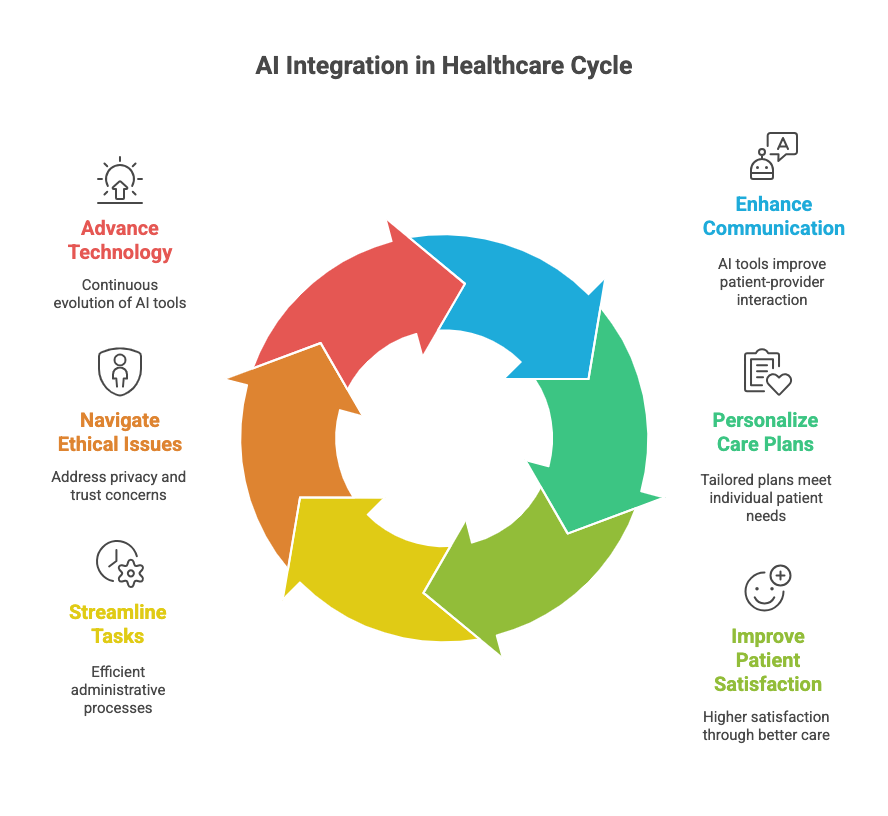
Frequently Asked Questions
How is AI currently improving patient-provider communication?
AI is enhancing patient-provider communication by utilizing virtual assistants and chatbots for immediate support, automating appointment scheduling for efficiency, and offering multilingual capabilities that cater to diverse patient populations. These advancements streamline interactions and ensure better engagement throughout the healthcare experience.
What are the main risks to consider when introducing AI in patient care?
When introducing AI in patient care, key risks include data privacy concerns, potential biases in algorithms affecting treatment equity, and the challenge of balancing automation with essential human interactions. Addressing these issues is critical to ensure safe and effective AI integration in healthcare.
Which AI technologies are most promising for enhancing patient interactions?
AI technologies enhancing patient interactions include natural language processing for improved communication, machine learning for personalized care recommendations, and chatbots for real-time support. These innovations streamline processes, foster engagement, and ultimately lead to better health outcomes for patients.


